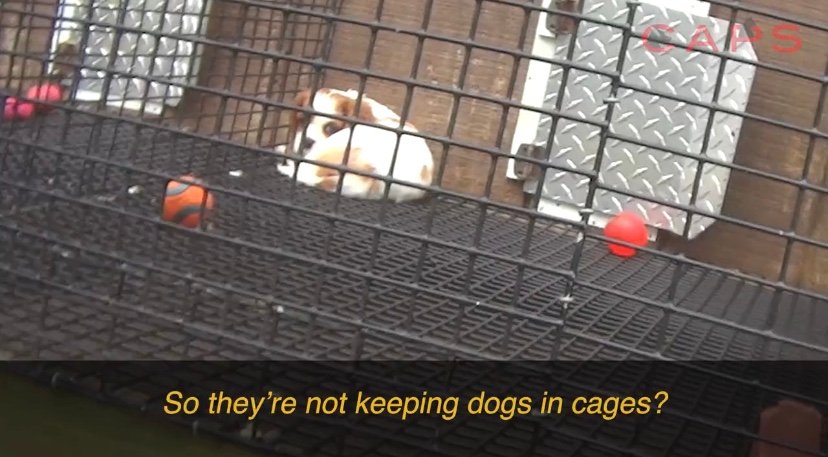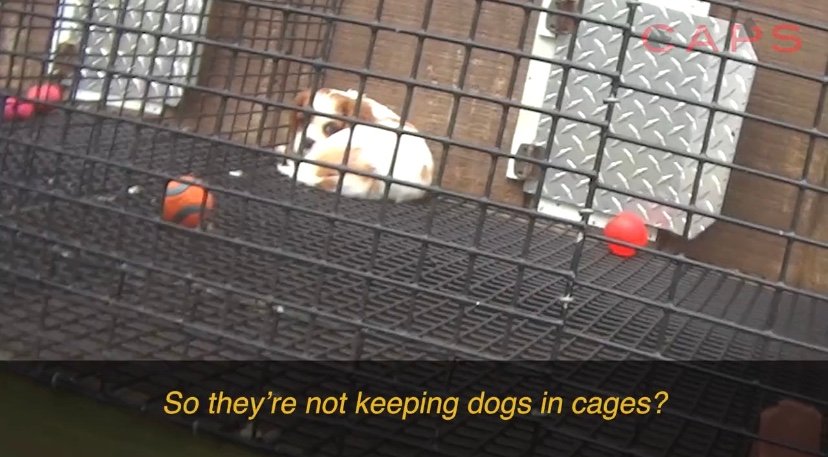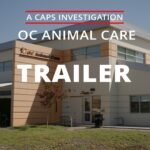
New York—the city that never sleeps. Over the course of CAPS’ 5-year investigation of New York pet shops, CAPS investigators didn’t seem to sleep much either. Between 2013 to 2018, CAPS went undercover to investigate more than 100 New York pet shops, some of them multiple times. Our investigations exposed widespread consumer fraud and revealed the shocking true sources of the puppies and kittens being sold.
I am Pete, CAPS’ lead investigator. You may recall that my undercover employment investigation brought down notorious dog broker/breeder Kathy Bauck in Minnesota, and that I worked undercover for six months at Missouri-based The Hunte Corp., then the largest dog broker in the country. I have gone undercover to over a thousand puppy and kitten mills—most of them USDA-licensed—and countless pet shops in several states over the course of my nearly 16 years with CAPS. In 2018, I investigated 60 pet shops in New York City and in the counties of Suffolk, Nassau, Westchester, and Dutchess.

With a population of more than 19 million, New York has more pet shops—currently 77—than any other state. I also investigated numerous breeding and brokering facilities that supply New York pet shops with animals. These facilities are mostly located in the Midwest—all of them are mills.
The dogs and cats in these facilities live in substandard conditions and receive minimal veterinary care. Multiple dogs are crammed into tiny wire cages, many of them biting on the wire and metal surrounding them. They often pace in tiny circles—an abnormal behavior that usually continues even if they are one day freed from confinement. And these are just a few of the appalling conditions I have documented.
In New York, I and other CAPS investigators directly questioned the employees at every pet shop in the state to see what they would tell us about the horrendous places that supply them with animals. What we heard in response to our questions was a massive collection of misleading statements and lies.

Many pet shops said that we could trust the breeders who supplied their puppies and kittens because they were all “USDA licensed.” While this is true, a USDA licensed facility IS a puppy or kitten mill.
At Little Wonders Puppy Emporium in Sayville, NY, one of the puppies I saw came from David Nisley, a breeder who is licensed by the USDA and runs a puppy mill. When I investigated David Nisley’s facility and asked him if the USDA was harsh with inspections and regulations, he responded “no,” shook his head, and continued: “When you spend that kind of money on a building, then you better have a lot of dogs and sell volume in order to make it pay off.”

I also investigated Citipups—both their West Village and Chelsea locations. I asked them how they made sure their puppies weren’t coming from puppy mills. They told me that their bosses “go out there two or three times a year” and that they only buy from “like 8 different breeders.” CAPS has documented at least 17 different breeders that sell puppies to Citipups.
I also captured footage of a sick puppy for sale at Citipups. This is common at pet shops. Most of the puppies you see being sold at pet shops are taken away from their mothers at eight weeks (sometimes younger, which is a violation of federal law), put on transports, and shipped across states. These puppies come from different litters and different kennels, making illnesses, such as Upper Respiratory Infections and Parvovirus, easy to spread.
Another question we had for pet shop employees was whether the mother dogs supplying their puppies are allowed to skip breeding cycles or if they are bred on every heat. All of the pet shops said their breeders skipped cycles. What we commonly heard from them was that mother dogs were only bred every eighteen months or every two years. However, the owner of Little Wonders Puppy Emporium disclosed a more honest answer: “No one invests in breeding stock,” he said, “and breeds once every two years. You invest in a breeding facility to breed your animals, so you can sell your dogs for profit. Whether you’re a small breeder, a hobby breeder, or a big breeder.” That was the unfortunate truth we were waiting to hear.
Of all the false information I was given during my investigation, one of the largest lies I heard came from Bow Wow Puppies in Huntington, New York. Their website states, “Suffolk county is the only county in New York that has banned the use of puppy mills.” This is NOT true—there is currently NO county that has banned puppy mill dogs at pet shops in New York.

Unfortunately, puppies are not the only victims of animal mills. Kitten mills exist, too. I have investigated four kitten mills that have sold to pet shops in New York, including Worldwide Puppies and Kittens in Belmore, Westchester Puppies and Kittens in Hartsdale, and Manhattan Puppies and Kittens in New York City. You can read more about one of our kitten mill investigations here:
Based on our investigation, USDA fined Nebraska kitten miller Claudia Obermiller $5,000 in 2016. She subsequently lost her USDA license.
So why spend 5 years on all of these investigations? Initially, CAPS began investigating all the pet shops in New York and the mills that sell to them for a project with the New York Attorney General. Now, we are not only continuing to work with the AG but are working closely with New York legislators to pass a state law that would ban the retail sale of dogs, cats, and rabbits. Pet shops would only be able to offer shelter and rescue animals. This legislation, S4234 and A6298, can save thousands of cats and dogs in shelters from being euthanized. More than 1.5 million animals in shelters are euthanized each year in the United States.
Watch the full documentary on our 5-year investigation that exposes consumer fraud in New York pet shops and the true source of their puppies and kittens—animal mills:
How You Can Help
Please help CAPS continue to make a difference in the lives of animals suffering in the pet shop and puppy/kitten mill industry by making a generous donation today. Your support helps make projects, like our New York investigation and documentary, possible.
Please contact your legislators to pass S4234 and A6298 if you are a New York resident. Find your legislators here:
https://openstates.org/find_your_legislator/
Please share this blog and documentary.




